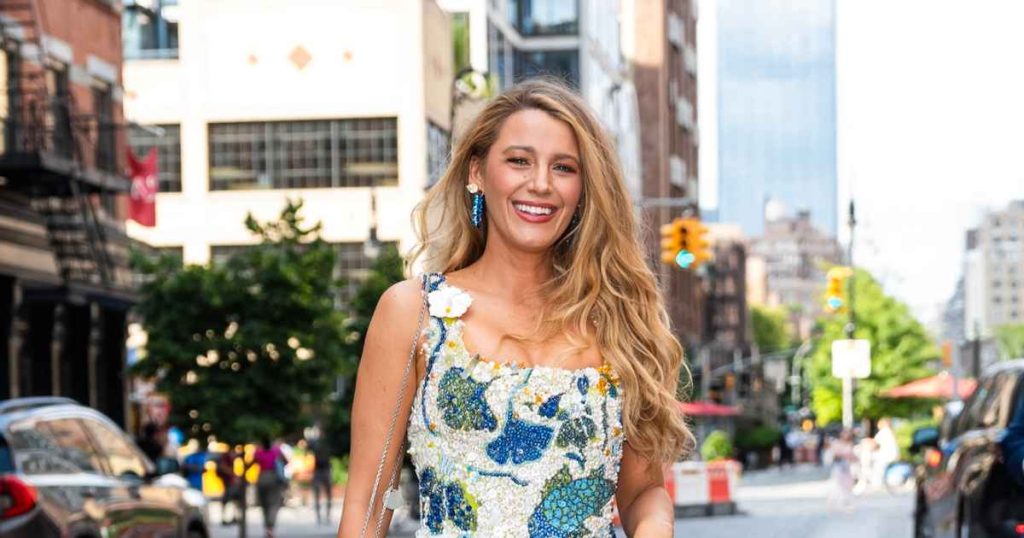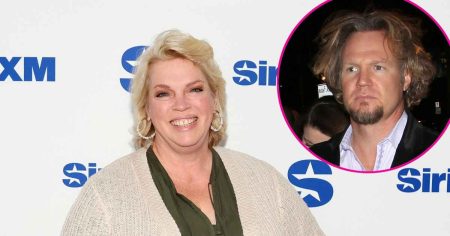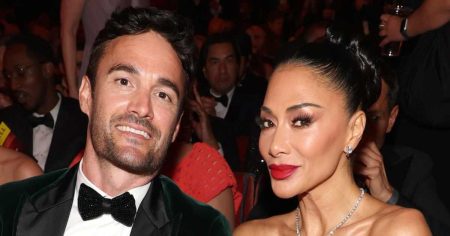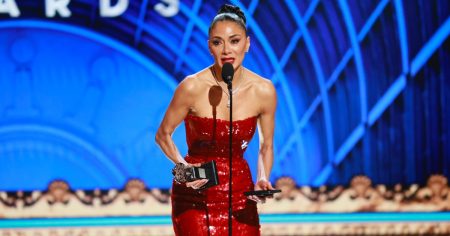Blake Lively’s two-decade career has been marked by both professional success and public controversy. Her rise to prominence began with the beloved “Sisterhood of the Traveling Pants” franchise, where she formed a close bond with co-stars America Ferrera, Alexis Bledel, and Amber Tamblyn. This bond has endured over the years, extending to playdates with their children and unwavering support during challenging times. This enduring friendship became especially evident during the controversy surrounding Lively’s film “It Ends With Us.”
The 2024 film “It Ends With Us,” adapted from Colleen Hoover’s novel, became a turning point in Lively’s career, not for its box office performance, but for the behind-the-scenes conflict that erupted. Lively, who played the lead role of Lily Bloom alongside Justin Baldoni, who portrayed her abusive husband, Ryle Kincaid, became embroiled in a highly publicized legal battle. While initial reports highlighted Lively’s involvement in various aspects of the film’s production, it was the lack of joint promotion that first hinted at trouble. The situation escalated dramatically when Lively filed a sexual harassment lawsuit against Baldoni in December 2024. Baldoni vehemently denied the allegations, countersuing Lively and accusing her of attempting to control the film’s creative direction, including hiring her husband Ryan Reynold’s editor to recut the film.
The ensuing legal battle became a media spectacle, with both sides presenting conflicting narratives. Baldoni characterized Lively’s actions as a power grab, alleging a “vicious smear campaign” orchestrated by her team. He claimed that Lively had effectively ousted him from the project, preventing him from participating in post-production. Lively’s legal team, however, refuted these assertions, arguing that her complaint was a legitimate pursuit of a safe working environment, not a strategic maneuver to control the film. This legal clash highlighted the complexities and challenges of addressing workplace harassment allegations in the entertainment industry, especially when high-profile individuals and competing interests are involved.
Amid the tumultuous legal battle, Lively found staunch support from her “Sisterhood of the Traveling Pants” co-stars, as well as colleagues from other projects. Ferrera, Bledel, and Tamblyn released a joint statement expressing solidarity with Lively and condemning the alleged retaliation she faced for speaking out. They emphasized the hypocrisy of using domestic violence narratives to silence a woman advocating for workplace safety, highlighting the challenges even powerful women face when addressing such issues. Jenny Slate, Lively’s co-star in “It Ends With Us,” echoed this sentiment, praising Lively’s bravery and leadership. These public displays of support underscored the importance of solidarity in the face of adversity and the power of collective voices in challenging potentially damaging narratives.
Beyond the “It Ends With Us” controversy, Lively’s professional relationships have painted a mixed picture. Her working dynamic with Anna Kendrick during the “A Simple Favor” films was described as collaborative and enjoyable, with both actresses praising their on-screen chemistry and off-screen camaraderie. Her relationship with Penn Badgley, her co-star and former romantic partner on “Gossip Girl,” seemingly transitioned into a professional one after their breakup, with both actors indicating a mature and respectful on-set dynamic. Similarly, co-star Chace Crawford attested to their professional maturity, dismissing any notion of lingering awkwardness. These accounts suggest Lively’s ability to maintain professionalism despite personal history or external pressures.
Other co-stars, like Ben Affleck from “The Town,” have commented on Lively’s professionalism and composure, particularly during sensitive scenes. Michele Morrone, her co-star in “A Simple Favor 2,” publicly voiced his support for Lively during the Baldoni lawsuit, expressing admiration for her strength and resilience. Michelle Trachtenberg, reflecting on the “Gossip Girl” years, refuted rumors of on-set feuds, emphasizing a generally harmonious atmosphere. Kelly Rutherford, who played Lively’s mother on “Gossip Girl,” described Lively as fearless and inspiring, though she acknowledged their limited interaction during the early days of filming due to Rutherford’s personal commitments. These varied perspectives offer a glimpse into Lively’s professional persona and the complex web of relationships she has navigated throughout her career. Ultimately, Blake Lively’s journey in Hollywood has been a complex tapestry of successes, challenges, and controversies, highlighting both the power of female friendships and the difficult realities of navigating the entertainment industry.










